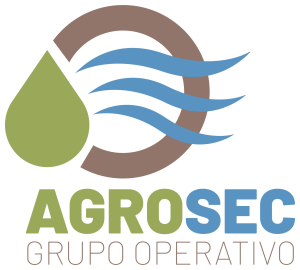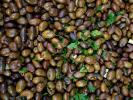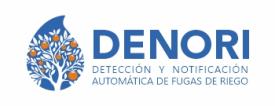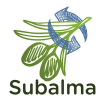
AGROSEC Operational Group: Use of agricultural by-products for the additive manufacturing of high-efficiency desiccant systems for air dehumidification
- Type Operational group
- Status In progress
- Execution 2023 -2025
- Assigned Budget 299.735,00 €
- Scope Autonómico
- Autonomous community Andalucía
- Project website GO AGROSEC
Abstract
- Recovery of olive pruning waste through its use in the production of a new, eco-friendly and biodegradable filament material that can be used as a raw material in the manufacture of 3D-printed parts.
- Development of inexpensive and energy-efficient dehumidification systems for the agri-food industry based on the use of 3D-printed desiccant elements and filament produced from olive pruning waste.
- Reducing ambient humidity in clean rooms dedicated to the production of food products (Iberian or other), which contributes to improving air quality in said rooms, reducing the risk of falls at the same level, preventing the appearance of mold on walls and ceilings, and slowing down corrosion processes.
- Identification of companies, administrations, and institutions that might be interested in this technology, with the goal of manufacturing or implementing it.
Description of activities
- To develop and experimentally analyze a new desiccant material obtained from olive pruning remains.
- Design and manufacture desiccant elements using 3D printing, using the new material developed from olive tree pruning remains.
- Implement desiccant dehumidification systems in clean rooms dedicated to the production and preservation of food products.
- Develop a remote monitoring, supervision, and control system based on cloud-based data storage.
- Dissemination of the results obtained.
Objectives
To develop, using 3D printing, highly efficient, highly compact, and low-cost desiccant systems made from olive pruning remains, intended to dehumidify air in clean rooms used for food production.
Results
- Recovery of olive pruning waste through its use in the production of a new, eco-friendly and biodegradable filament material that can be used as a raw material in the manufacture of 3D-printed parts.
- Development of inexpensive and energy-efficient dehumidification systems for the agri-food industry based on the use of 3D-printed desiccant elements and filament produced from olive pruning waste.
- Reducing ambient humidity in clean rooms dedicated to the production of food products (Iberian or other), which contributes to improving air quality in said rooms, reducing the risk of falls at the same level, preventing the appearance of mold on walls and ceilings, and slowing down corrosion processes.
- Identification of companies, administrations, and institutions that might be interested in this technology, with the goal of manufacturing or implementing it.
Contact information
- Coordinator/entity name: CITOLIVA Foundation
- Postal address: Calle Sierra Morena, s/n. CTSA Building (ground floor) Geolit. Technology Park, 23620, Mengíbar, Jaén
- Coordinator/entity email: mdjimenez@citoliva.es
- Telephone: 953221130
Coordinators
- Fundación CITOLIVA
Beneficiaries
- Fundación CITOLIVA







